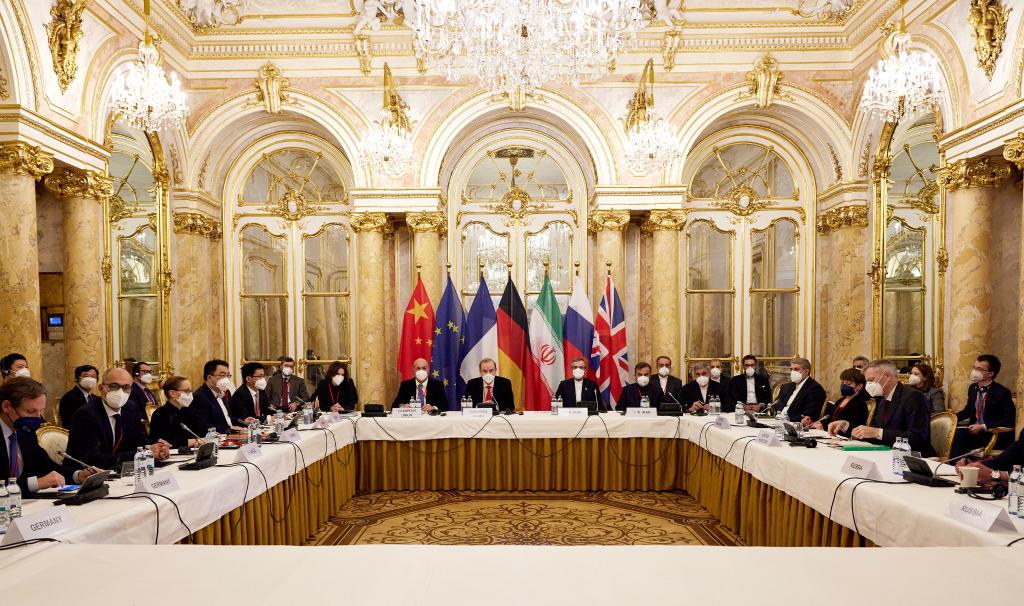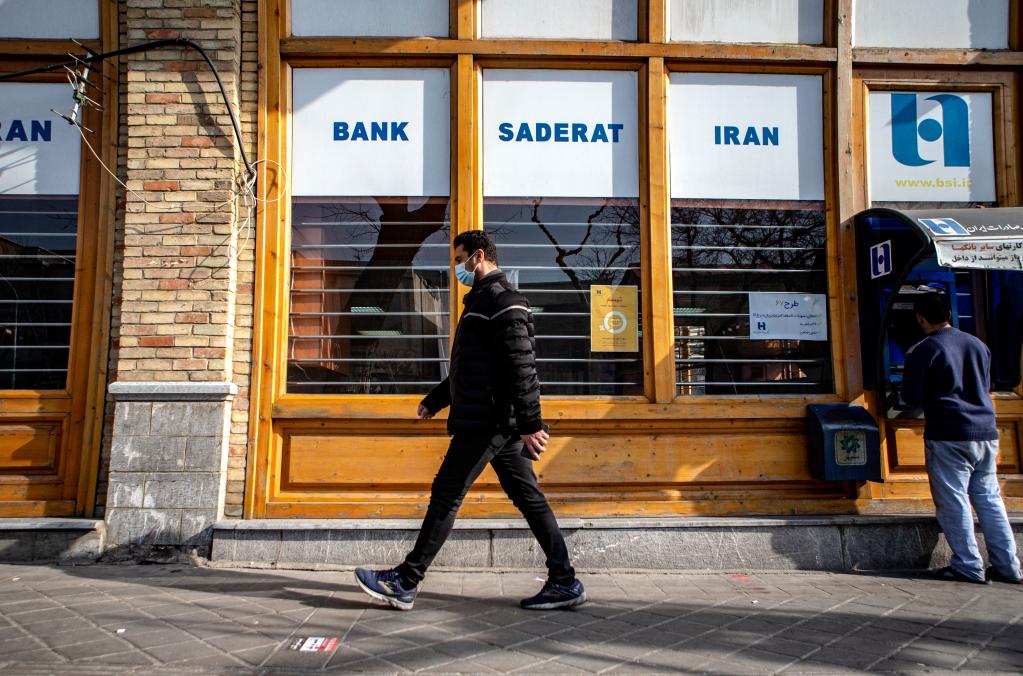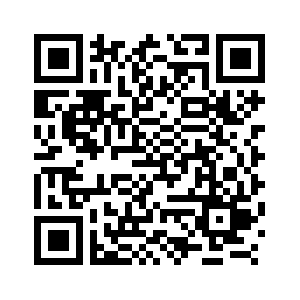Washington, if it wants to rejoin the 2015 agreement and be accepted around the table, has to show enough will and do what is needed in terms of the removal of sanctions, so as to convince other parties involved that the United States can actually be accepted as "part of the deal," said Iranian Foreign Ministry Spokesperson Saeed Khatibzadeh.
by Xinhua writer Gao Wencheng
TEHRAN, Jan. 20 (Xinhua) -- The United States, which unilaterally quit the Iranian nuclear deal in 2018, can "gain a ticket to the negotiating room" to revive the landmark pact "only if they change their behavior," Iranian Foreign Ministry Spokesperson Saeed Khatibzadeh said on Tuesday.
In an exclusive interview with Xinhua, Khatibzadeh said Washington, if it wants to rejoin the 2015 agreement and be accepted around the table, has to show enough will and do what is needed in terms of the removal of sanctions, so as to convince other parties involved that the United States can actually be accepted as "part of the deal."
Since April 2021, Iran and the other five remaining signatories of the Joint Comprehensive Plan of Action (JCPOA), namely Britain, China, France, Russia plus Germany, have been holding talks in Vienna to restore the nuclear deal. The United States has been indirectly taking part in the Vienna talks as it is no longer a party to this deal.

Photo taken on Dec. 3, 2021 shows a meeting of the Joint Commission on the Joint Comprehensive Plan of Action (JCPOA) in Vienna, Austria. (EU Delegation in Vienna/Handout via Xinhua)
The United States has not only pulled out of the JCPOA, but also violated the United Nations Resolution 2231, which is obligatory to everybody, the spokesperson said.
Though they campaigned partially based on returning to this international accord, the Democratic administration under U.S. President Joe Biden has continued Donald Trump's so-called maximum pressure campaign, which resulted in a "maximum failure policy," Khatibzadeh pointed out.
According to the spokesperson, Americans "are doing whatever they can to sabotage Iran's relations with other countries, especially to prevent Iran from normalizing its foreign economic relations with other countries."
Noting Iran's painful memories with U.S. sanctions, he said, "the United States is very much addicted to using sanctions, and the only language they are trying to use against independent countries such as Iran and China is coercive language, or the naked language of force."
However, such an approach is "very much doomed to failure," because it is impossible for the United States to impose its will on other nations "which have shown to a great extent that they are independent, and they are resilient to these pressures and coercive measures," he said.

A man walks past an Iranian bank in Tehran, Iran, Jan. 28, 2021. (Photo by Ahmad Halabisaz/Xinhua)
The United States tries to inflict pain on the Iranian nation, unfortunately even in the midst of the COVID-19 pandemic when the United States is widely expected to change its policy on the countries it has sanctioned, Khatibzadeh added.
"But they didn't change anything and in fact, they even tried to sabotage Iran's efforts to transfer money to buy vaccines," he said, denouncing such an action as "a shame for the United States and a shame for humanity."
Regarding the ongoing diplomatic endeavors in Vienna, he said the Iranian side wants to make sure that "there are enough mechanisms embedded in the new understanding that the United States can get to the deal while there is a reliable and stable new agreement."
Iran demands "objective guarantees that the United States is not going to mock international law" by violating the deal again, Khatibzadeh said, adding that Iran wants to "verify that this time they are not going to cheat as previously they did their best to actually make enough obstacles for Iran's economic, trade, and business relations with other counties."
On the sanctions-lifting aspect of the deal, negotiators in Vienna "are not advancing a lot because Americans are yet to make the needed political decisions in their capital," he said.
"It is too soon to jump to a conclusion whether we are going to finish an agreement soon. But we have all the reasons to work out a Plan A, which is a stable and reliable agreement in Vienna," Khatibzadeh emphasized.
Produced by Xinhua Global Service ■



